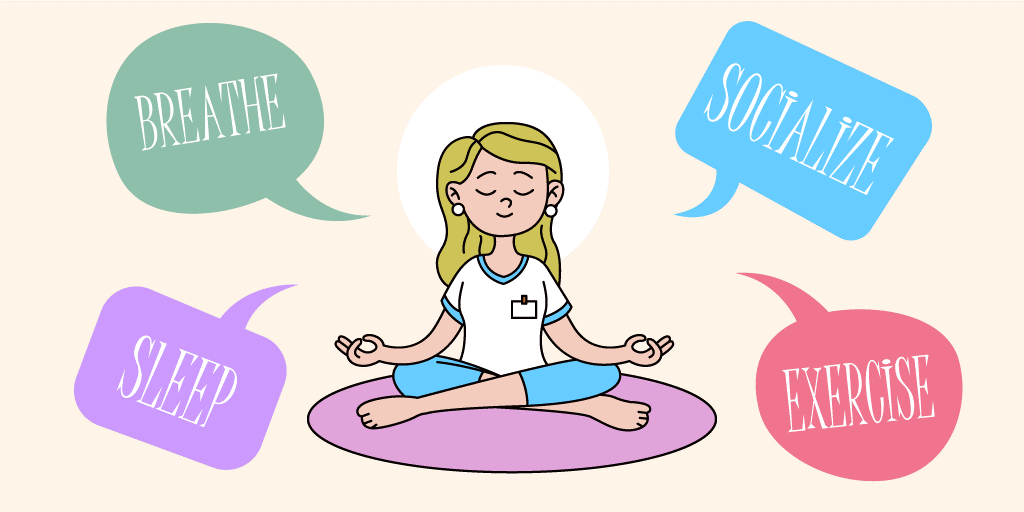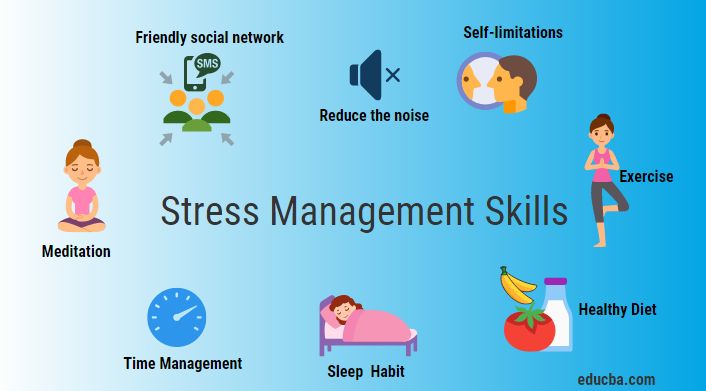Stress Management: Strategies for a Healthier Life
In today’s fast-paced world, stress has become an almost inevitable part of our lives. Whether it’s the pressure at work, personal relationships, or the challenges of daily life, stress can take a toll on our physical and mental well-being. However, the good news is that stress management techniques and strategies can help us not only cope with stress but also lead healthier, more fulfilling lives. In this article, we will explore the various aspects of stress, its impact on our health, and most importantly, effective ways to manage and reduce stress in our daily lives.
Understanding Stress
Stress is a natural response that our bodies have developed over millions of years as a means of survival. When faced with a perceived threat or danger, our bodies release stress hormones, such as adrenaline and cortisol, to prepare us for a “fight or flight” response. While this response is essential for our survival, prolonged exposure to stress can lead to numerous health problems.
Chronic stress has been linked to various physical and mental health issues, including high blood pressure, heart disease, anxiety, depression, and even a weakened immune system. Therefore, it’s crucial to understand the sources of stress in our lives and learn how to manage them effectively.
Identifying Stressors
Before we can effectively manage stress, it’s important to identify the specific stressors in our lives. Stressors can be external, such as work-related pressures, financial difficulties, or relationship problems. They can also be internal, stemming from negative self-talk, perfectionism, or unrealistic expectations.
Keeping a stress journal can be a helpful tool in identifying stressors. By recording when and why you feel stressed, you can pinpoint patterns and triggers that contribute to your stress levels. Once you’ve identified these stressors, you can begin to address them more effectively.
Healthy Lifestyle Habits
Maintaining a healthy lifestyle is one of the most effective ways to manage and reduce stress. Regular exercise, a balanced diet, and adequate sleep play a significant role in stress reduction. Exercise releases endorphins, which are natural mood lifters, and helps the body process stress hormones more efficiently. A well-balanced diet provides the nutrients your body needs to cope with stress, while adequate sleep rejuvenates your mind and body.
Additionally, practicing relaxation techniques, such as meditation, deep breathing exercises, and progressive muscle relaxation, can help reduce stress and promote a sense of calm. These techniques are easily incorporated into your daily routine and can be especially beneficial during stressful moments.

Time Management and Prioritization
Many people experience stress because they feel overwhelmed by the demands of daily life. Effective time management and prioritization can help alleviate this stress. Start by creating a daily or weekly schedule that includes both work-related tasks and personal activities. This schedule can help you allocate your time more efficiently and ensure that you have time for self-care and relaxation.
When prioritizing tasks, focus on the most important and urgent ones first. Learn to say no to additional commitments when your plate is already full, and delegate tasks when possible. By managing your time and priorities effectively, you can reduce the feeling of being constantly rushed and stressed.
Building Strong Relationships
Maintaining healthy relationships with friends and family is crucial for stress management. Social support is a powerful buffer against stress, and spending time with loved ones can provide emotional comfort and a sense of belonging.
Effective communication is key to building and maintaining strong relationships. Express your feelings, needs, and concerns honestly and openly, and be a good listener when others need to talk. A strong support system can offer valuable perspectives, advice, and emotional support during challenging times.

Coping with Work-Related Stress
Work-related stress is a common issue for many individuals. To manage stress in the workplace, consider the following strategies:
- Set Boundaries: Establish clear boundaries between work and personal life. Avoid checking work emails or taking calls during your personal time.
- Time Management: Prioritize tasks, set realistic deadlines, and break larger projects into smaller, manageable steps.
- Seek Support: Talk to your supervisor or HR department if you’re overwhelmed at work. They may be able to provide resources or solutions to reduce your stress.
- Take Breaks: Regular short breaks during the workday can help reduce stress and increase productivity.
- Self-Care: Engage in self-care activities outside of work to recharge and relax.
Conclusion
Stress is a natural part of life, but chronic stress can have detrimental effects on our health and well-being. By understanding the sources of stress, adopting healthy lifestyle habits, managing time effectively, building strong relationships, and implementing coping strategies in the workplace, we can take significant steps toward managing and reducing stress in our lives. Remember that stress management is an ongoing process, and what works best for one person may not work for another. Experiment with different techniques and strategies to find what works best for you, and prioritize your mental and physical health for a happier, less stressful life.
References:
- HelpGuide. (n.d.). Stress Management: How to Reduce and Relieve Stress. Retrieved from https://www.helpguide.org/articles/stress/stress-management.htm
- Jennifer. (n.d.). Ways to Manage Stress. Retrieved from https://www.webmd.com/balance/stress-management/stress-management
- MayoClinic. (n.d.). Stress Management. Retrieved from https://www.mayoclinic.org/tests-procedures/stress-management/about/pac-20384898#:~:text=For%20example%2C%20you%20may%20learn,tai%20chi%2C%20exercise%20and%20prayer.
- WHO. (n.d.). Stress. Retrieved from https://www.who.int//news-room/questions-and-answers/item/stress/?gclid=Cj0KCQjw0vWnBhC6ARIsAJpJM6f1MO2Ie5ITlGGL_aQbyu1cR9jp6lKYNB6imZkZ7XSjL_pPHhhT21oaAgUTEALw_wcB

